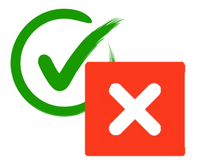HR DIRECTORS STAGE
BLOCK 1: Sustainable Workforce Strategies for an ESG-Aligned Future
P 1.1 Building a Sustainable Workforce: Aligning HR Practices with ESG Goals
- Integrating ESG into Everyday Practices: Are We Moving Beyond Policies to Real Impact?
- Talent Acquisition with a Purpose: Are Sustainability Goals Shaping Our Hiring Criteria?
- Measuring Success in ESG Alignment: How Can HR Track Workforce Engagement in Sustainability?
P 1.2 Talent Strategies for a Circular Economy: Are We Ready for the Shift?
- Reskilling for Circular Competencies: Do Our Employees Have the Skills Needed?
- Recruiting Talent for Circular Innovation: Is Purpose-Driven Hiring Essential?
- Retention in a Purpose-Driven Model: Will Sustainability Goals Keep Employees Engaged?
P 1.3 Employee Engagement in the Age of Sustainability: More Than Just a Buzzword?
- Beyond Compliance: Are Employees Truly Committed to ESG Goals?
- Incentivizing Sustainable Practices: What Role Does HR Play?
- Measuring ESG Engagement: How Can HR Track Real Impact?
P 1.4 Sustainability Training: Are We Preparing Employees for New Standards?
- Building ESG Awareness: Is Sustainability Knowledge a Core Competency?
- Tailored Training for Operational Roles: Are We Equipping Employees with Practical ESG Skills?
- Measuring Training Effectiveness: Are We Seeing Real Behavioral Change?
BLOCK 2: Empowering a Consumer-Centric Workforce for Retail & CPG
P 2.1 Developing a Consumer-Centric Workforce: What Skills Are Essential?
- Prioritizing Empathy and Personalization: Are We Meeting Modern Consumer Expectations?
- Data Literacy in Customer-Facing Roles: Can Employees Use Insights to Drive Loyalty?
- Aligning Brand Values with Consumer Engagement: Are We Training Employees to Be Brand Ambassadors?
P 2.2 Empowering Employees as ESG Ambassadors: Bridging Brand Values with Consumer Trust
- Preparing Customer-Facing Teams to Speak with Purpose: Are We Training Employees as ESG Advocates?
- Handling Consumer Expectations for ESG Transparency: Are Our Teams Ready?
- Strengthening Consumer Trust Through Real Values: Can HR Drive Authenticity Across Roles?
P 2.3 Aligning HR Strategy with Brand Purpose: How Important is a Values-Driven Culture?
- Embedding Brand Purpose in the Workforce: Are We Creating a Culture that Consumers Trust?
- Hiring for Cultural Fit: Should Purpose Be a Key Factor in Talent Acquisition?
- Purpose-Driven Retention: Can Brand Loyalty Begin Within the Company?
P 2.4 Attracting and Retaining Gen Z Talent: How Should Retail & CPG Evolve?
- Meeting Gen Z Expectations for Meaningful Work: Are We Aligned with Their Values?
- Balancing Flexibility and Structure: Can We Offer a Work Model that Appeals to Gen Z?
- Creating Clear Growth Paths: Is Career Development a Strong Enough Focus?
BLOCK 3: Future-Proofing Talent for Digital Transformation
P 3.1 Future-Proofing Through Digital Skills: Are We Keeping Up with Industry Demands?
- Identifying Key Digital Skills: Are We Targeting the Right Competencies?
- Upskilling and Reskilling: Can We Bridge the Digital Skills Gap?
- Building a Digital Mindset: Are Employees Embracing Digital Change?
P 3.2 Adapting to Automation: Balancing Technology with Human Talent
- Redefining Roles for Automation: Are We Maximizing Human Potential?
- Supporting Employee Transitions: Is HR Prepared to Guide Workforce Changes?
- Automation and Employee Engagement: Are We Maintaining Morale?
P 3.3 Employee Well-Being and Mental Health in a Digitally-Driven Workplace
- Addressing Digital Overload: Are We Protecting Employees from Burnout?
- Balancing Productivity and Well-Being: Are Performance Metrics Creating Unnecessary Pressure?
- Building Resilience in the Face of Change: Is HR Providing Enough Support?
P 3.4 Transforming HR through Data: Is People Analytics the Future?
- Unlocking Talent Insights: Are We Using People Analytics to Its Full Potential?
- Balancing Data and Privacy: Can We Gain Insights without Crossing Boundaries?
- Enhancing Engagement through Data: Are Analytics Creating a More Connected Workforce?
BLOCK 4: Leading Through Change: Building Resilience and Agility in the Workforce
P 4.1 The Hybrid Workforce Model: Maintaining Productivity and Collaboration
- Balancing Flexibility with Operational Needs: Are We Getting Hybrid Right?
- Fostering Collaboration in a Dispersed Workforce: Is Team Cohesion at Risk?
- Managing Performance and Accountability: Are We Setting Clear Expectations?
P 4.2 Leadership Agility in a Rapidly Changing Market: Building Resilience from the Top Down
- Preparing Leaders for Uncertainty: Are We Cultivating Agility at Every Level?
- Balancing Stability with Flexibility: Can Leaders Navigate Change without Compromising Consistency?
- Empowering Leaders to Inspire Resilience: Are We Building a Culture of Confidence?
P 4.3 Strategic Workforce Planning for Resilience: Preparing for Market Volatility
- Anticipating Talent Needs in an Uncertain Market: Are We Planning for the Future?
- Building a Flexible Talent Pipeline: Are We Ready to Scale Up or Down?
- Developing a Multi-Skilled Workforce: Is Cross-Training the Key to Workforce Resilience?
P 4.4 Employee Empowerment and Accountability: Creating a Proactive Workforce
- Empowering Decision-Making at Every Level: Are We Encouraging Ownership?
- Building Accountability into Daily Operations: Are Clear Expectations in Place?
- Encouraging a Proactive Mindset: Are We Recognizing Initiative?
If you’d like to review more stages, please return to the Content Review & Feedback page and select the stages of your interest. Once you’re ready, please send your comments to: Club369@conferences-united.pl.
